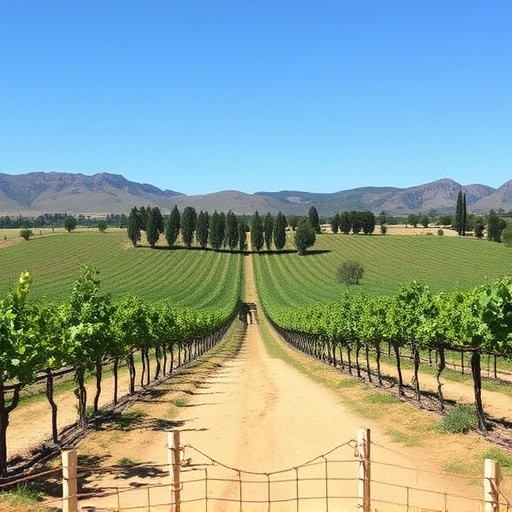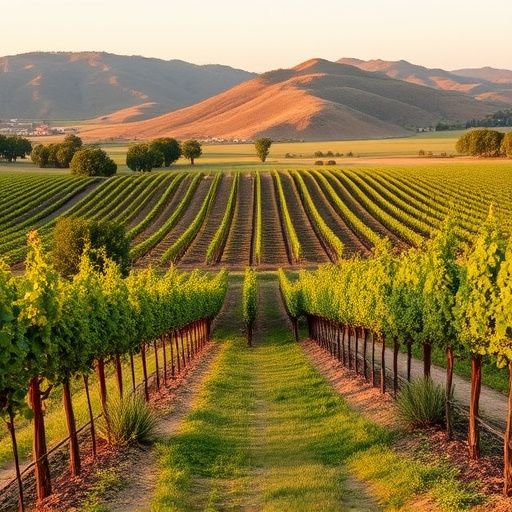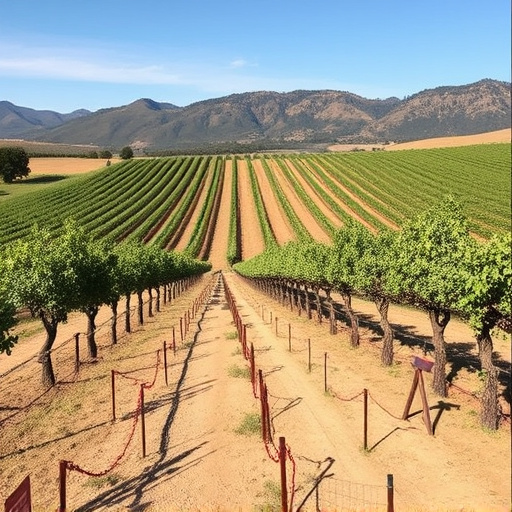In the Sonoita region, dry farming—an ancient, sustainable practice that minimizes water usage—is revolutionizing wine production. Local vineyard owners leverage natural climate patterns and soil moisture retention to nurture grapes, fostering deep root growth and preserving local water resources. This technique yields distinct, high-quality wines reflective of the area's unique terroir, while promoting soil health and minimizing environmental impact. Sonoita vineyards are thus establishing a harmonious relationship between agriculture and nature through this innovative approach.
“Uncover the vibrant world of Sonoita vineyards embracing eco-conscious practices, particularly the ancient technique of dry farming. This region’s unique approach not only contributes to sustainable wine production but also fosters a healthier environment and local ecosystem. By delving into the definition, challenges, and benefits of dry farming in Sonoita, we explore how these innovative vineyards are revolutionizing the industry, meeting consumer demands for sustainable wines.”
- Understanding Dry Farming in Sonoita Region's Vineyards
- – Definition and significance of dry farming
Understanding Dry Farming in Sonoita Region's Vineyards
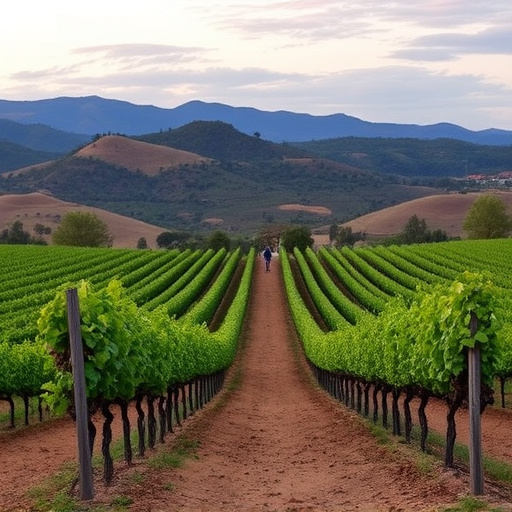
In the heart of the Sonoita region, a unique and sustainable farming practice is transforming the way we think about wine production—dry farming. This ancient technique, revitalized by eco-conscious vineyard owners, involves minimal water use, relying on the area’s natural climate patterns to nurture the grapes. Unlike traditional methods that depend heavily on irrigation, dry farmers in Sonoita embrace the region’s hot, dry summers and cool, moist winters, allowing the soil to retain moisture naturally.
Sonoita vineyards practicing dry farming showcase a profound respect for both the land and their crops. By forgoing artificial watering, these vineyards encourage deep root growth, resulting in robust and resilient grapevines. This method not only preserves the region’s precious water resources but also contributes to a healthier ecosystem, reducing the overall environmental impact. The diverse microclimates and varied soil types across Sonoita provide an ideal testing ground for dry farming, yielding distinct and remarkable wines that reflect the terroir of these unique vineyards.
– Definition and significance of dry farming
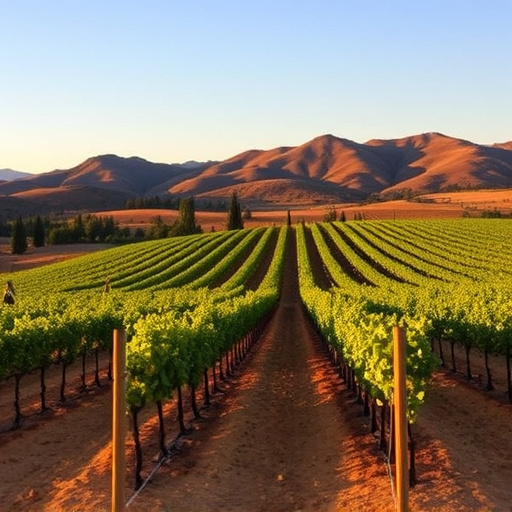
Dry farming is a sustainable agricultural practice that has gained significant attention in the wine industry, particularly among eco-conscious sonoita vineyards. Unlike traditional irrigation methods, dry farming relies solely on rainfall and soil moisture retention to grow grapes. This ancient technique involves carefully managing the vines’ water needs, allowing them to develop deep root systems that can access water from greater depths during drier periods. By forgoing artificial watering, dry-farmed grapes often exhibit concentrated flavors and unique characteristics, contributing to the region’s diverse wine portfolio.
In the Sonoita region, known for its arid climate, dry farming has become a cornerstone of sustainable viticulture. Local vineyards embrace this practice to minimize water usage, reduce environmental impact, and promote soil health. The approach fosters a more resilient ecosystem, as vines adapt to natural conditions, resulting in wines that reflect the distinct terroir of the area. This eco-friendly method not only conserves precious water resources but also encourages a more harmonious relationship between agriculture and nature, ensuring the long-term viability of sonoita vineyards.
The Sonoita region, renowned for its vibrant vineyards, has embraced eco-conscious practices with dry farming as a game-changer. This ancient technique, tailored to the unique climate, showcases the region’s commitment to sustainable viticulture. By minimizing water usage and relying on natural processes, Sonoita vineyards not only preserve their terroir but also contribute to a more environmentally friendly wine industry. As these eco-friendly practices gain traction, the future of Sonoita’s vineyards looks brighter and more sustainable.

